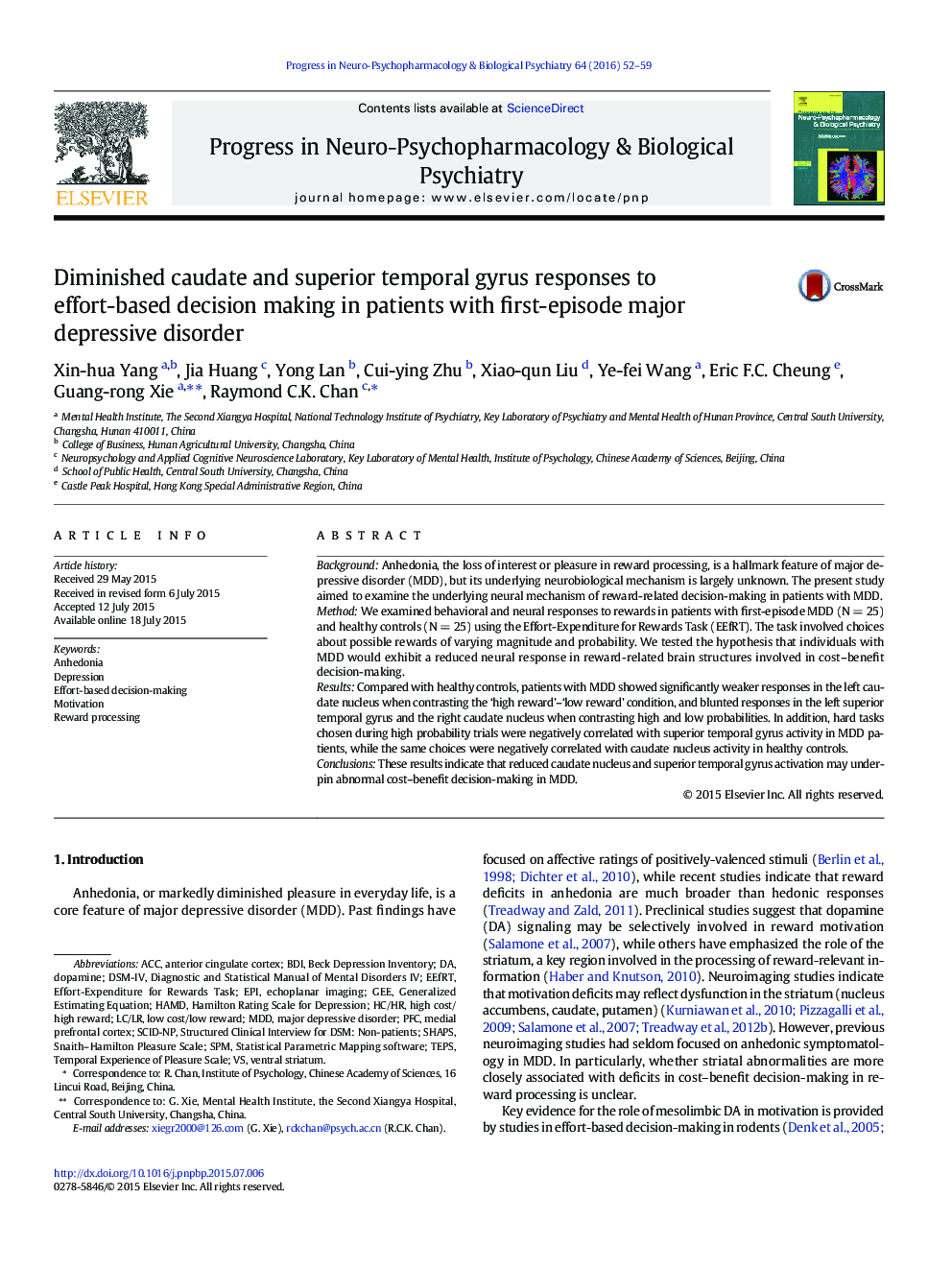| کد مقاله | کد نشریه | سال انتشار | مقاله انگلیسی | نسخه تمام متن |
|---|---|---|---|---|
| 5844264 | 1561030 | 2016 | 8 صفحه PDF | دانلود رایگان |
- Examine the neural mechanism of reward-related decision-making in MDD patients
- MDD patients showed reduced caudate nucleus and superior temporal gyrus activation
- Abnormal decision-making reflected in cortico-striatal connectivity deactivation
BackgroundAnhedonia, the loss of interest or pleasure in reward processing, is a hallmark feature of major depressive disorder (MDD), but its underlying neurobiological mechanism is largely unknown. The present study aimed to examine the underlying neural mechanism of reward-related decision-making in patients with MDD.MethodWe examined behavioral and neural responses to rewards in patients with first-episode MDD (NÂ =Â 25) and healthy controls (NÂ =Â 25) using the Effort-Expenditure for Rewards Task (EEfRT). The task involved choices about possible rewards of varying magnitude and probability. We tested the hypothesis that individuals with MDD would exhibit a reduced neural response in reward-related brain structures involved in cost-benefit decision-making.ResultsCompared with healthy controls, patients with MDD showed significantly weaker responses in the left caudate nucleus when contrasting the 'high reward'-'low reward' condition, and blunted responses in the left superior temporal gyrus and the right caudate nucleus when contrasting high and low probabilities. In addition, hard tasks chosen during high probability trials were negatively correlated with superior temporal gyrus activity in MDD patients, while the same choices were negatively correlated with caudate nucleus activity in healthy controls.ConclusionsThese results indicate that reduced caudate nucleus and superior temporal gyrus activation may underpin abnormal cost-benefit decision-making in MDD.
Journal: Progress in Neuro-Psychopharmacology and Biological Psychiatry - Volume 64, 4 January 2016, Pages 52-59
